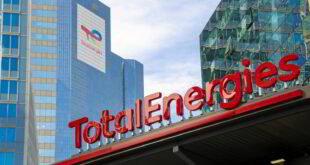European energy infrastructure needs $2.7 trillion in investment to reach the EU’s climate goals by 2050 and keep Europe competitive on a global scale, lobby group the European Round Table for Industry (ERT) said in a new report on Tuesday.
The EU’s ambition to be a carbon-neutral bloc by 2050 requires massive investments in energy infrastructure, including grid expansion, power storage, and infrastructure for low-carbon hydrogen and carbon capture, ERT said.
“This is not a mere upgrade but a fundamental transformation to meet our climate goals and remain globally competitive,” said the group, noting that to achieve this, Europe will need $868 billion (800 billion euros) by 2030, and as much as $2.7 trillion (2.5 trillion euros) in energy infrastructure investment by 2050.
“Beyond current capacity, we need both national and cross-border infrastructure for power grids, hydrogen, and CO?. This infrastructure will play a crucial role in managing volatile renewable energy sources, a function currently handled by fossil fuels,” the report says.
To boost investment to such levels in the coming years and decades, Europe will need more collaboration between public and private capital and a stronger and more supportive regulatory framework to incentivize investments in grids and low-carbon hydrogen, according to ERT, which developed the report with the support of Boston Consulting Group (BCG).
Currently, complex EU regulations hinder private capital access, and “We need a leaner regulatory framework and a clear business case for private investors,” the group said.
If the gap between required and actual investments persists, the European energy system will not be able to fully integrate zero-emission power sources and system costs will rise due to compensations for curtailment, when power generators are forced to stop generation, according to the report.
Investment needs are likely to accelerate after 2030 to accommodate a growing share of renewable sources, while in countries where the share of photovoltaic (PV) power is high, the required build-up of energy storage will also be high to compensate for increased variability in the energy system, ERT noted.
“Infrastructure modernisation is where the rubber hits the road in the Green Deal, yet policymakers are not doing enough to enable the real delivery of the targets they have set,” said Dimitri Papalexopoulos, chair of the energy transition and climate change committee at ERT.

 Iran Energy News Oil, Gas, Petrochemical and Energy Field Specialized Channel
Iran Energy News Oil, Gas, Petrochemical and Energy Field Specialized Channel



